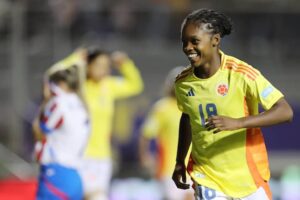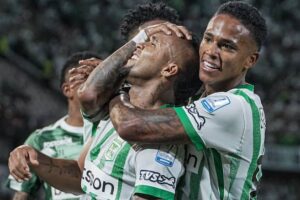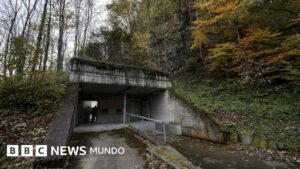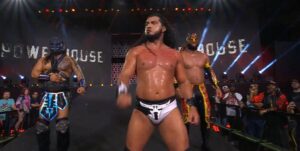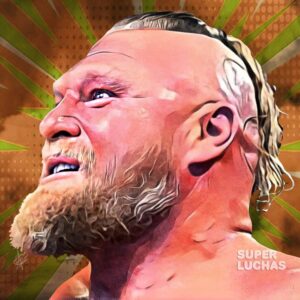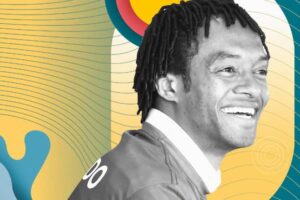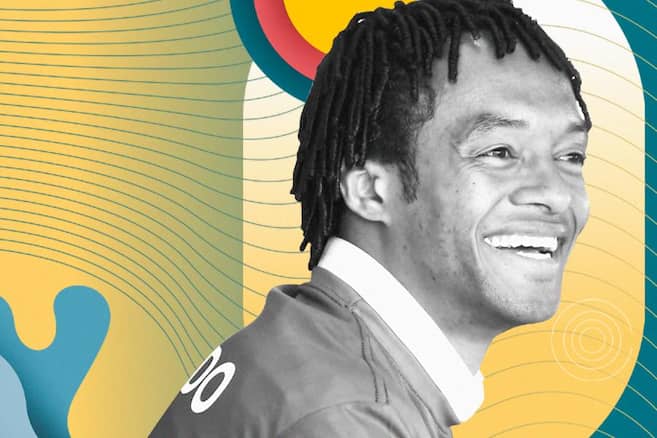

If something defines with Antioquia wheel, who takes 16 seasons in the European elite, it is its constancy.
Photo: Eder Leandro Rodríguez
Summary and Fast Informame
Listen to this article
Audio generated with Google
Juan Guillermo Cuadrado speaks with the tranquility of those who have enjoyed his successes and managed to deal with adversity. At 37, this footballer from Necoclí, in the Antioquia Urabá, has not only shone on the courts of Europe, but has built, step by step, a legacy that has immortalized him as a reference for Colombian sport.
“I was always a very dreamy child and God rewarded me not only with what I dreamed, but with more than I could imagine,” he says with emotion. Just as on the court it can be a side, a lane or an end, in life also knew how to adapt to circumstances.
Behind the player who for more than a decade has dressed the Colombian national team – it is the second with more presences – there is a deeply grateful son with his mother, Marcela Bello. He could not count on his father, Guillermo, because violence snatched it when he was barely four years old.
In spite of everything he did not lose sight of his horizon and grew with the clear objective of being a professional footballer. His good performances at an amateur level with Atlético Urabá caught attention in the First Division. Independiente Medellín gave him the opportunity to debut and the rest was history.
At 20 he was already a professional, at 21 he made the leap to European football after signing with Udinese and the 22 was already in the national team. He played two World Cups – was the maximum assistor of Brazil 2014 with Toni Kroos – and five Copas América. In 2015 he became the first Colombian to win the Premier League and, with six scudettos, he is also the tricolor footballer with more titles in Serie A and the most matches in the Champions League.
Square, whose best happened when he was Juventus player – club in which he became a captain – knows that he has been privileged and that is why he feels he has a duty beyond sport. “I thank my mom for raising with good principles. It really always starts from home. Most boys know the importance of not only being a footballer, but a person.”
One of the engines of his life has been the desire to help others. From there the Juan Cuadrado Foundation (FJC) was born, which took shape in a simple conversation at home: “We sit down to talk to my representative, Andrés Martínez, and we said: 'Go, we should do something … just as God has blessed us, how can we be a blessing for other people?'”
That was the starting point for a project that today supports children in Medellín. Go to its foundation as a bridge so they can fulfill what he achieved. In it he forms children and young people through sport, educational alliances and psychosportational support. Near the Metropolitan Technological Institute has a dining room in which, with Hyundai support that facilitates their transport, it allows children from the FJC and the Sierra (neighborhood of commune 8) to have two meals a day.
It also takes a message of hope to prisons of the country, such as Bellavista, in Bello, which he visited a couple of weeks ago. “One must assume the errors for the decisions that one makes, but always try to bring a message of hope, of life,” he says, convinced that the transformation is even possible in the most hostile places.
If something defines with Antioquia wheel, who takes 16 seasons in the European elite, it is its constancy. “That boy who never surrendered, always had the determination to follow.” Today, after having played in great European clubs, such as Chelsea, Juventus, Inter Milan, among others, continues to train with discipline not only to stay in the elite, but to dress the tricolor shirt again.
“I am proud because I never stopped believing. God put a dream in me and worked. I still struggled with the 'no' that came.” The race, for him, does not end with the titles: “For me it is better to continue running, to have education, be one day in the sky with my dad.”
Therefore, when he talks about his life after the courts, he does it with his feet on the ground. He has been studying sports management and is clear that he wants to continue linked to football, perhaps as a representative, perhaps as an entrepreneur. In parallel, he has invested projects such as Gautapé Plaza in Antioquia and other businesses in the United States and Italy. His vision is clear: “football is for a while and must interest not only the present, but to try to give your family good bases.”
Although he does not hide his desire to continue competing in Europe and eventually return to the National Team – “representing a country is the most beautiful thing there can be” -, also contemplates, with enthusiasm, the possibility of closing his career in the Medellín, the club that saw him born at a professional level. “I would love to be able to do it there, in the powerful.”
And when asked about the talent of his region, from which more renowned athletes have come out, such as Caterine Ibargüen, Yuberjen Martínez and Francisco Mosquera, proudly respond that “in Urabá there are people with a lot of talent and very hungry to overcome. That makes the difference: not only to have a dream, but to fight to get it.”
Square, to the places he was, he left a little of his culture. For him, the word “panita” was used in calcium locker room. Its dances, gambetas and joy were marked in the elite, where more than colleagues had great friends. He wants to be remembered as more than a footballer. “That people know me not for the player I am, but for having principles. I want to reflect what I am as the Son of God: with difficulties, not being perfect, but more and more complete.”
